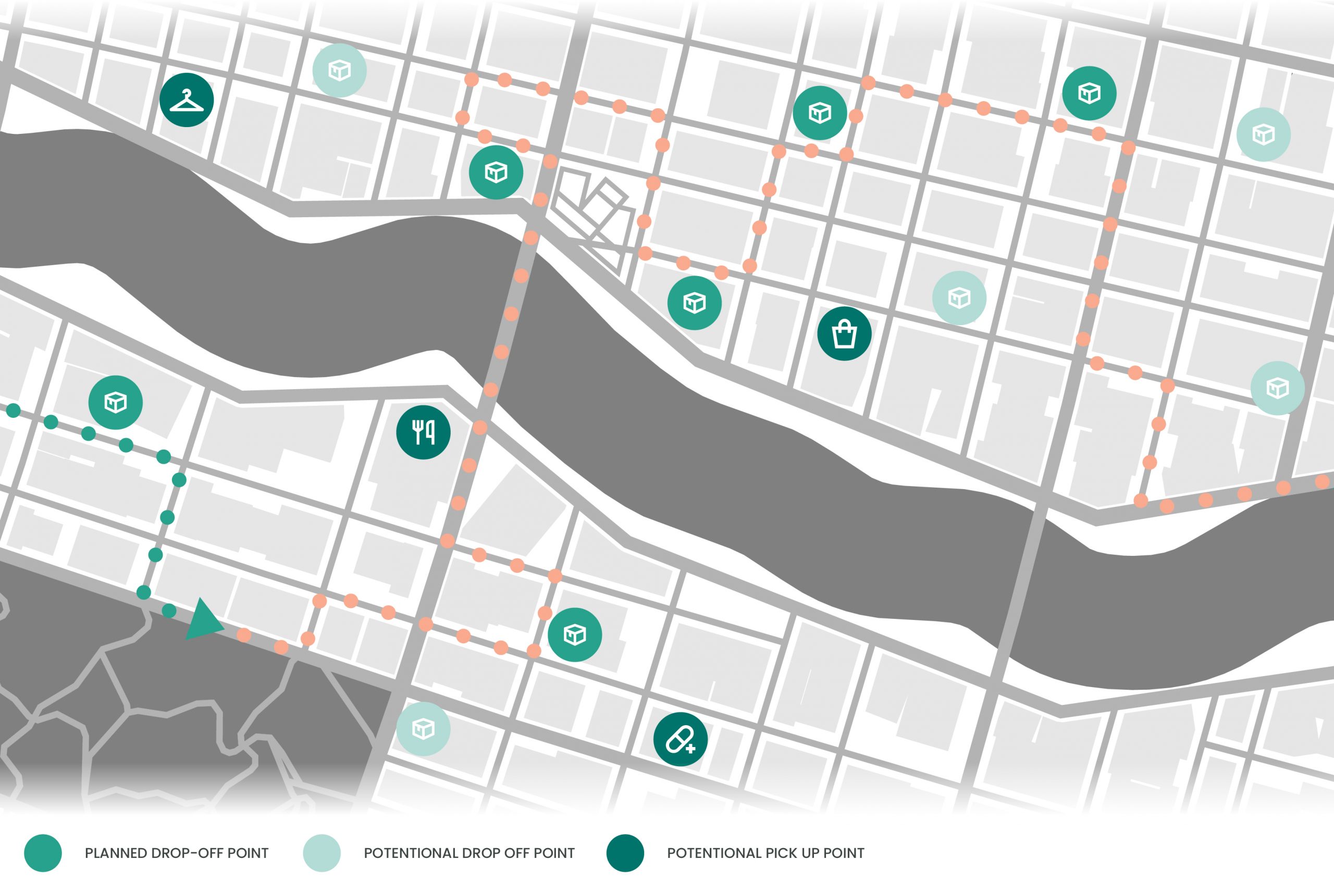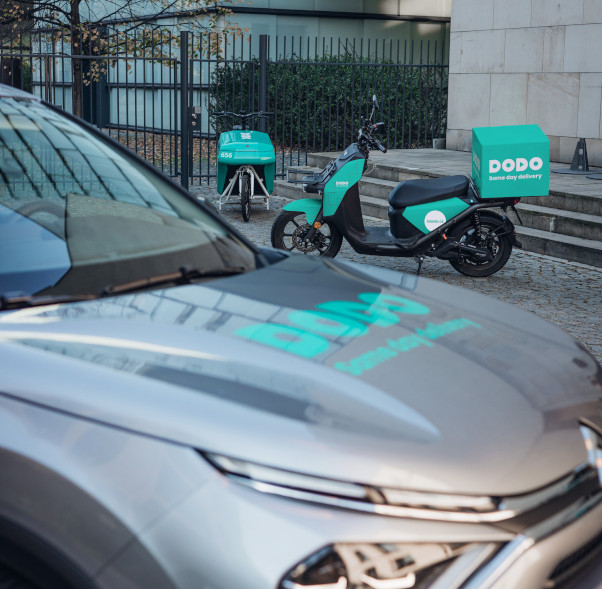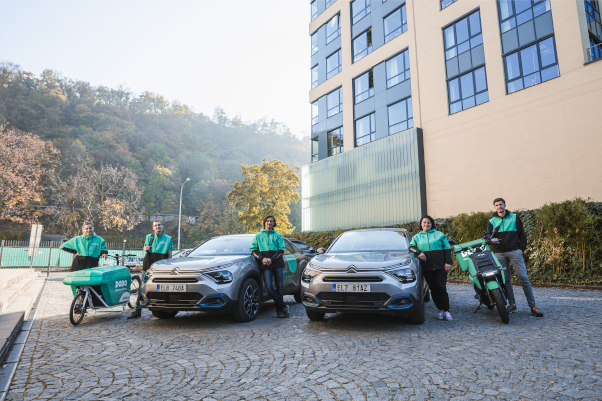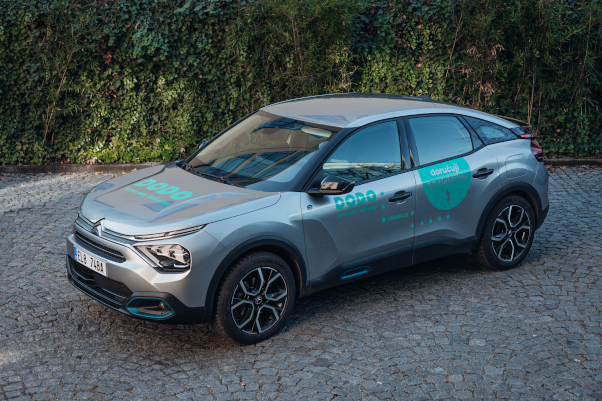Last mile delivery is not only the most expensive part of the entire logistics chain, but unfortunately it also produces the most emissions. Standing traffic in clogged city streets thus negatively affects the environment. Due to the increasing number of parcel deliveries, carbon dioxide is expected to increase by up to 32 percent in densely populated areas by 2030. We at DODO are aware of this and try to minimize the negative impact we have on our surroundings.: For us, the topic of sustainability is not just a buzzword, but we actually apply this approach in everything we do. In practice, this translates into the 3 E’s on which our company is based.
We strive for maximum efficiency so that the vehicles run at maximum capacity and do not unnecessarily burden traffic and the environment.
The flexibility of our business model allows us to dynamically adjust our logistics capacity, which we divide among our own fleet, franchisees and external partners. This allows us to respond quickly to changing demand and to adapt our services efficiently.
We contribute to reducing the burden on urban traffic with efficient last-mile logistics solutions. At the same time, by using alternative sources of fuel, we continuously minimize our impact on the environment.
To minimise the impact of last-mile logistics on urban traffic and the environment, we pride ourselves on maximum efficiency. If there are cars on the streets that are not fully utilised, unnecessarily more of them have to be in operation, which has a negative impact on the traffic situation in cities and also, unfortunately, pollutes the environment. As we wrote above, last-mile logistics are expected to be responsible for up to 32% of the CO2 increase in densely populated areas by 2030. And it is this negative impact that we at DODO are working to minimize.
One of the ways in which we minimise these negative impacts is by trying to maximise the capacity of our vehicles. Each segment peaks at a different hour. People order groceries, restaurant food or consumer electronics, for example, at different times. For this reason, it is common for transport companies’ cars to run half-empty. In contrast, our system can balance these individual peaks and merge the different segments into a single route. As a result, fewer cars are in service that would negatively impact the environment or urban traffic.
DODO is implementing zone logistics to speed up and streamline the delivery of parcels in cities. This innovative concept of smart resource sharing delivers faster delivery for customers, lower transportation costs for clients, and better utilization for vehicles. Zone logistics is an environmentally friendly approach to urban logistics that reduces road traffic, traffic emissions and ultimately delivery costs. Thanks to artificial intelligence and advanced technologies, capacities in cities are calculated and optimized in real time, ensuring efficient and fast delivery of shipments.
Zone logistics allows products from different segments to be combined for delivery, maximizing the use of vehicle space and resources. For example, online supermarket purchases, office furniture or fresh flowers can be delivered in one vehicle, making full use of cargo space, fuel and courier time. This makes delivery more efficient; the customer gets their order faster and the client pays less for delivery. Such a zone logistics concept improves the overall transport situation in cities and contributes to the sustainable development of urban logistics.

Using our exceptional software ecosystem, which relies on machine learning and works with advanced predictive models, we are able to dynamically adapt our logistics capabilities to different situations. Our solution includes not only our own fleet of vehicles, but also collaboration with our franchise partners and the use of third-party transport, giving us the flexibility to respond to changing demand and adapt our services almost instantly.
Thanks to this sophisticated combination of technology, in-house resources and external partners, we can respond reliably and efficiently to the needs of our customers and the market. Our GAIA software platform enables us to maintain a competitive advantage and provide sustainable and innovative logistics solutions.
With an innovative approach to last mile logistics, we contribute to reducing the burden on urban traffic and protecting the environment. We emphasize the use of alternative sources of fuel that minimize our environmental impact.
Alternative modes of transport such as electric cars, electric cargo bikes and electric scooters play a key role in our strategy. In this way, we strive to ensure that our services are as environmentally friendly as possible.
DODO is committed to green logistics by using alternative modes of transportation such as electric cars, bicycles, electric cargo bikes and electric scooters to reduce our environmental burden. We are actively pursuing and testing innovative forms of transportation, such as drone delivery and hydrogen-powered vehicles, to make our transportation as efficient and environmentally friendly as possible. Our goal is to find the best combination of transport solutions for individual city districts and entire cities.


